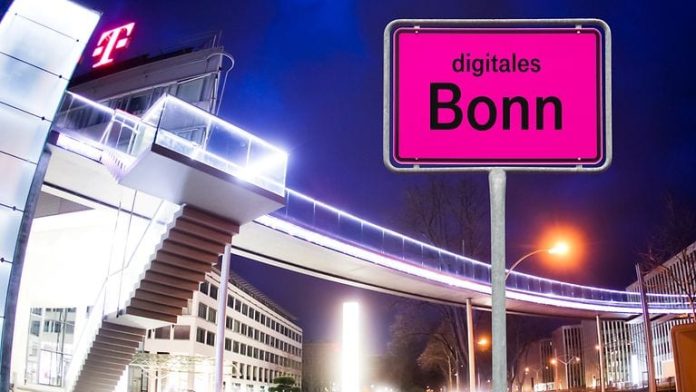Deutsche Telekom has unveiled a new smart city app, through which cities can pick and promote their smart city services. It has also announced a new smart city platform, for cities to pool their data, and a launch partner for it, in the city of Bonn.
At Smart City Expo World Congress in Barcelona last week, the German operator showcased its one Smart City App (OSCA), developed with the German Association of Towns and Municipalities (DStGB – Deutscher Städte- und Gemeindebund) and more than 20 test cities across Germany and Spain.
The app is standardised and customisable, it said. City administrations can use it to offer their own smart services, and citizens can use it to access city services, whether they are in their hometown, or another venue using the same platform. Deutshe Telekom said it wants the app to be a cross-border solution for smart city services in Europe.
Meanwhile, Deutsche Telekom claimed its Data Intelligence Hub (DIH) is the “first marketplace for the secure exchange, processing and analysis of data collected by smart city services”.
Other smart city vendors may dispute this. The German outfit maintained a familiar line about its proposition – the example is data collected from from traffic and environmental sensors can be collected in the platform. It said city planners will be able to combine data from a variety of open data sources in the future to bring higher intelligence and innovation to their operations.
Bonn is to offer its city data-sets via the platform. The platform will provide residents access to data about the city, including sightseeing opportunities, the location of Wi-Fi hotspots and taxi stands, as well as waste collection times.
Markus Keller, senior vice president for smart cities at Deutsche Telekom, said: “We help city administrations to more efficiently serve their citizens within and beyond city borders through the joint development and testing of innovative and scalable smart city services. These building blocks together with our work on smart city data processing create a powerful combination for the foundation of a true smart city ecosystem.”
Deutsche Telekom said it has also partnered with United Smart Cities, a global initiative by the United Nations Economic Commission for Europe (UNECE) in cooperation with the Organization for International Economic Relations (OiER) and other entities. Both partners will work to jointly develop a global community for cities worldwide.
Deutsche Telekom is consolidating its smart city activities in its European Smart Solutions Centre (ESC) in Budapest, in Hungary.
The company’s work in the smart city space is well illustrated in Poland, where T-Mobile Poland is bringing together a dozen smart city solutions.
Meanwhile, the German operator has recently provided an update on its work with Nokia to test industrial 5G use cases and network slicing in real-world conditions in the Port of Hamburg in Germany. “The test bed has given us a glimpse of the huge potential that 5G and, in particular, network slicing will offer,” commented Jens Meier, chief execu of HPA.
Back in January, Hamburg’s port area became a testing ground for various case studies to demonstrate the reliability of the new 5G standard, including for monitoring movement and environmental data on ships in the port, guiding trucks around the site, and making high volumes of data available outside of existing networks.
The Hamburg experiments have used separate virtual networks for managing the traffic light system and transmitting environmental data, for example. “The test bed has given us a glimpse of the huge potential that 5G and, in particular, network slicing will offer,” says Jens Meier, chief executive of Hamburg Port Authority.

